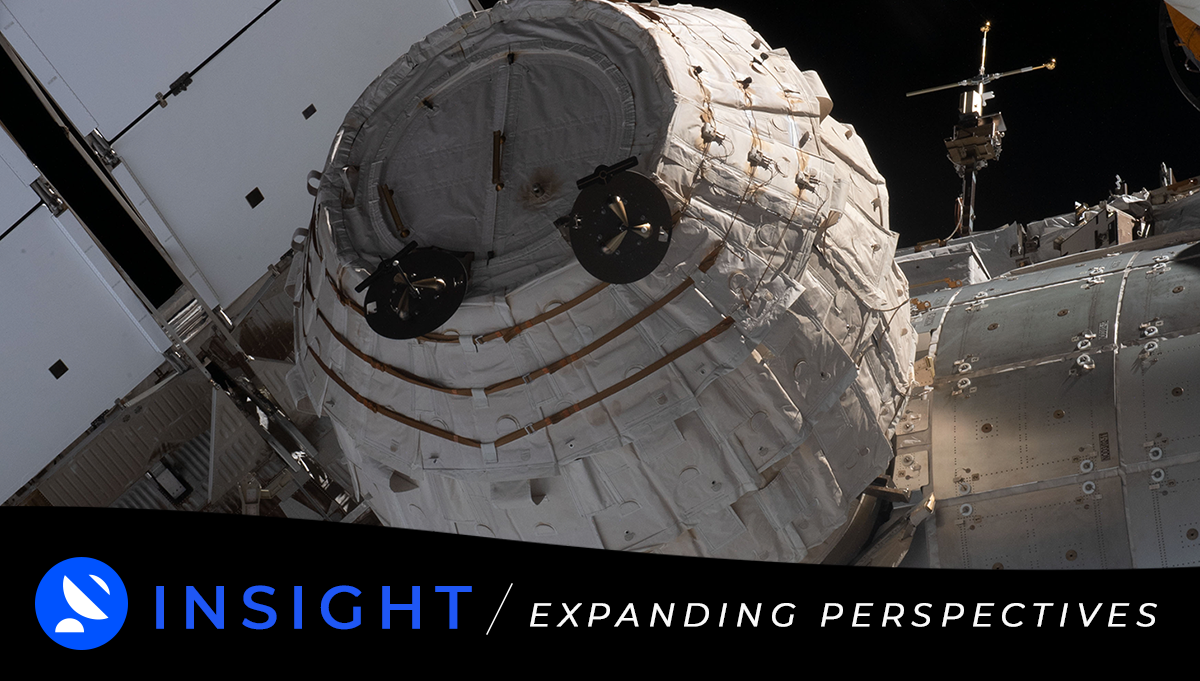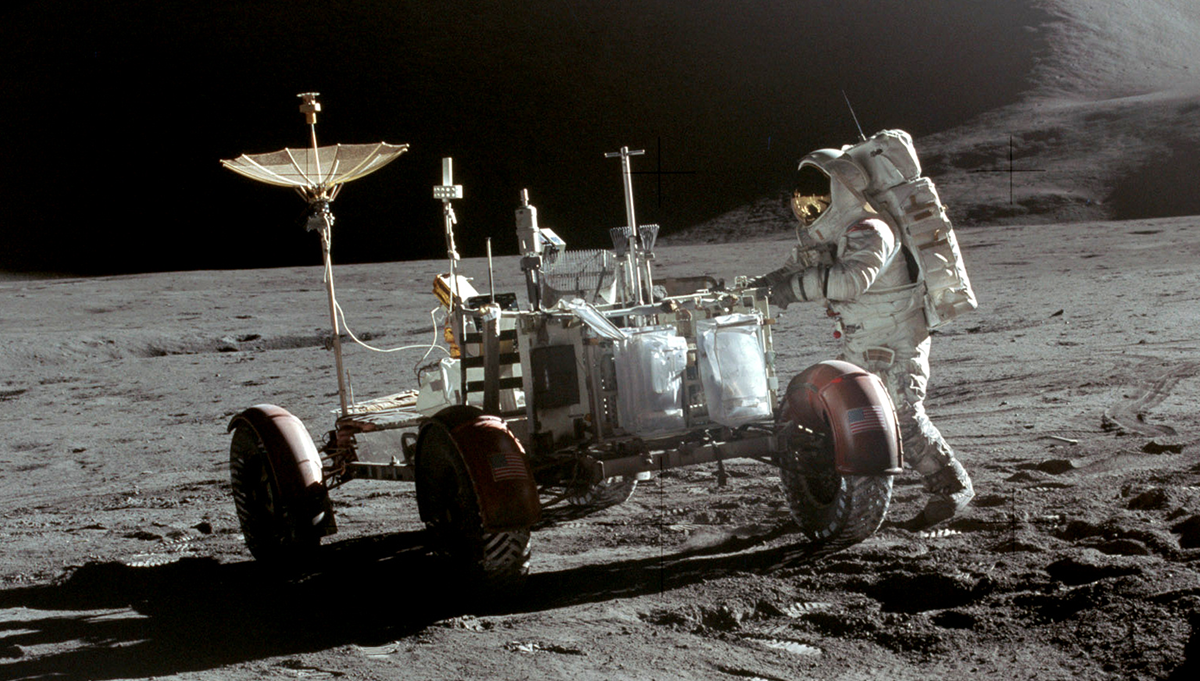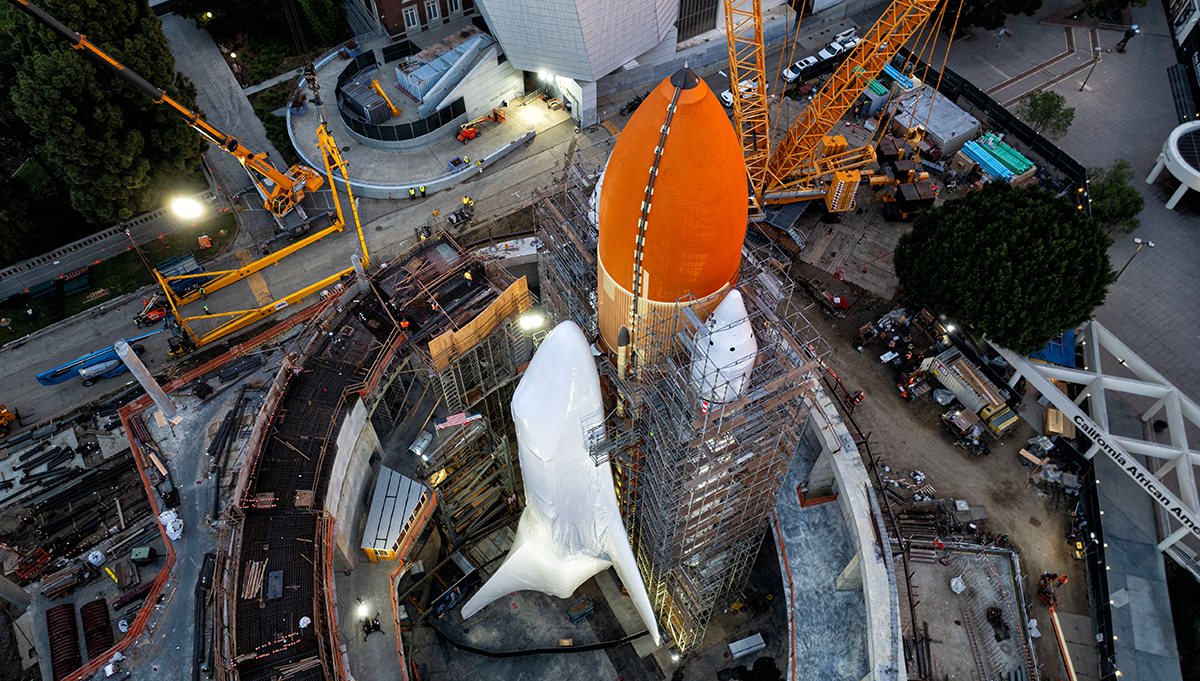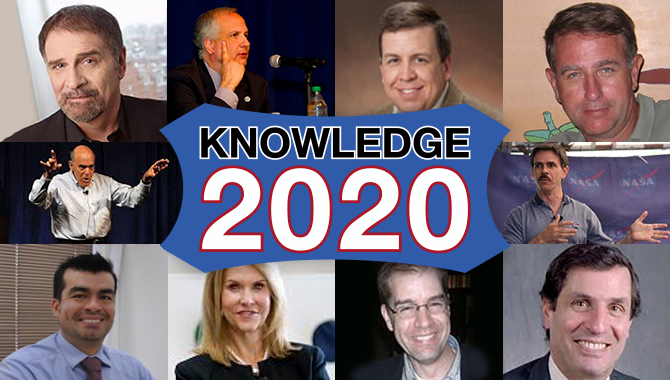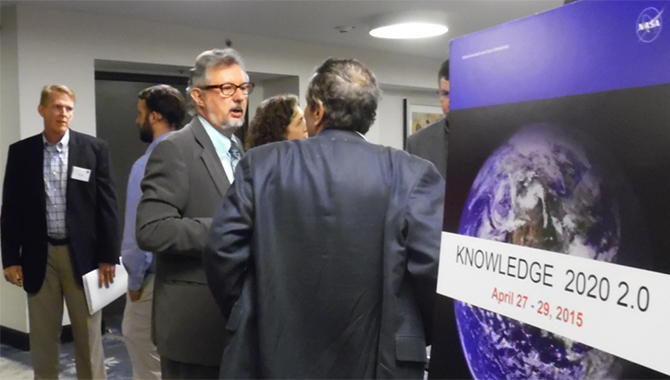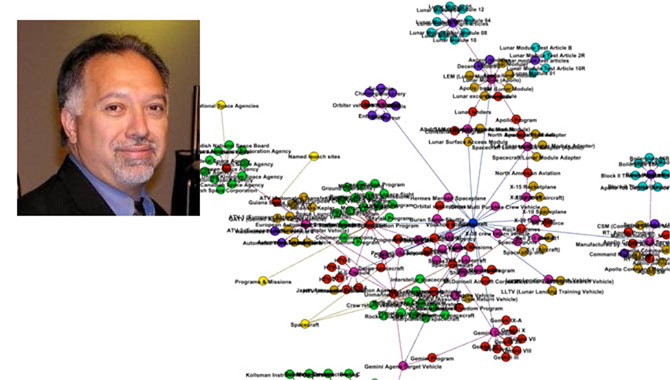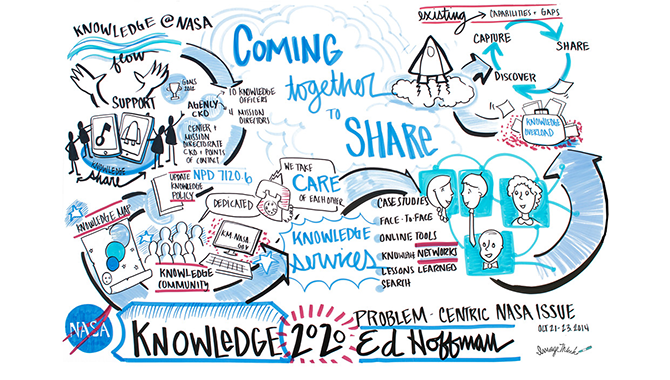
ImageThink graphically and conceptually captures Ed Hoffman’s opening remarks at Knowledge 2020, a conference designed to improve the transfer of critical knowledge across NASA as an agency.
Photo Credit: NASA / Susan Snyder
Knowledge 2020 gathered together some of the best practitioners of knowledge sharing from within NASA, other organizations, and private industry leaders.
Over 50 Project Leads, Engineers, and Knowledge Management and Services practitioners—from NASA and other high technically organizations—came together for a unique knowledge sharing and problem-solving conference at Kennedy Space Center (KSC), October 21st – 23rd, 2014, marking the first Knowledge 2020 event.
NASA’s CKO, Ed Hoffman, hosted Knowledge 2020, to engage NASA knowledge community members and project practitioners in helping NASA to enhance the flow of critical knowledge across NASA and beyond.
NASA leaders and fellow knowledge workers engaged in activities related to organization-wide and worldwide knowledge sharing, through presentations, question-and-answer panel discussions, and round-table work groups brainstorming and developing practical recommendations. The conference content and context related directly to oversight organizations’ objectives (Aerospace Safety Advisory Panel) for effective knowledge sharing through procedural, process, technological and institutional means within high technical and diversified organizations.
Knowledge 2020 began with a pre-conference welcome event: Larry Prusak – founder of the IBM Institute for Knowledge Management and author of numerous articles and books – described three distinct generations of knowledge learning practices over the last 25 years. While he mentioned what each generation failed to achieve, he also stressed what each accomplished, including the creation of a body of work allowing managers and leaders to understand how knowledge is unique from data and information. His distinction between “how to” knowledge and “know how” knowledge created a platform for other discussions throughout the conference.
The conference speakers included other experts from industry, associations, and consulting services, all sharing their best and leading practices. One such best practice included Merck Manufacturing sharing a brief After Action Review (AAR) called a Take 5! to identify lessons by asking Merck’s workforce five questions: 1) What was supposed to happen? 2) What actually happened? 3) Was there a difference and why? 4) What can we learn? And 5) Who needs to know about this and how do we share it with them? Hoffman was interested in this AAR, as well as Ecopetrol’s 24 Activities for KM Excellence, for adoption and adaption for NASA in the agency’s meeting is Knowledge Management objectives
Many thanks to the speakers who gave their valuable time to NASA by sharing their best and leading practices and for recommending how NASA can enhance the flow of critical knowledge amongst projects and programs across the Agency. Those speakers are listed below. Click on their names to see the session poster created by ImageThink artists. Click on the title of their presentation to view a pdf of their presentation.
Carla O’Dell, CEO, American Productivity and Quality Center (APQC), presented on “Knowledge Issues and KM Trends in Scientific, Engineering, and Technical Settings” and outlined how NASA could use project and knowledge management and technical expertise to prepare for looming retirement of a generation of experts, why some KM efforts are more lasting than others, that “people approaches make system approaches work,” and how smart leaders leverage their experts.
Oscar Javier Guerra, Unit Head, Knowledge Management and Innovation Strategy, Ecopetrol, Columbia, outlined the “Knowledge Management at Ecopetrol” program while correlating it to NASA’s evolution and challenges in mission, governance, strategies, operations, processes, and as approaches inlcuding technical forums and individual knowledge performance objectives.
Marty Lipa, Executive Director, Knowledge Management Center of Excellence, Merck Manufacturing Division and Rob Guenard, Director, Knowledge Management Center of Excellence, Merck Manufacturing Division, shared “A Practical Approach to Sharing Knowledge” that included the company’s response to historic growth and growing pressures through mapping knowledge flows, understanding networks, and executing concepts such as frameworks, stewardship, and business priority alignment.
Larry Suda, Palatine Group/Management Worlds, Inc, discussed his experiences with TeamWorks in his presentation on “Challenges, Successes, Lessons Learned of TeamWorks at the United Nations,” highlighting this extranet designed specifically for sharing knowledge across a large and divergent organization with high demands on Return on Investment.
Don Cohen–Writer, researcher, and consultant on organizational knowledge and social capital–presented “Knowledge and Narrative,” explaining how storytelling creates content and context for sharing knowledge, providing a framework for understanding, process, social capital, and sense-making.
Jon Cowart , NASA Commercial Crew Program, KSC and Dan Rasky, Chief Portal Office, NASA Ames, were interviewed by Ed Hoffman on their work with SpaceX and experiences with Agile and Rapid Prototyping, particularly important now as NASA engages the world of the commercial space industry. SpaceX has applied software development’s “fail fast and often” strategy to aerospace in developing its new launch vehicle and spacecraft.
If you work for NASA as a civil servant or contractor and you are interested in participating at the next Knowledge 2020 event, please contact Susan Snyder or call 301-837-3918.
To view the white paper on the event, please click here.


